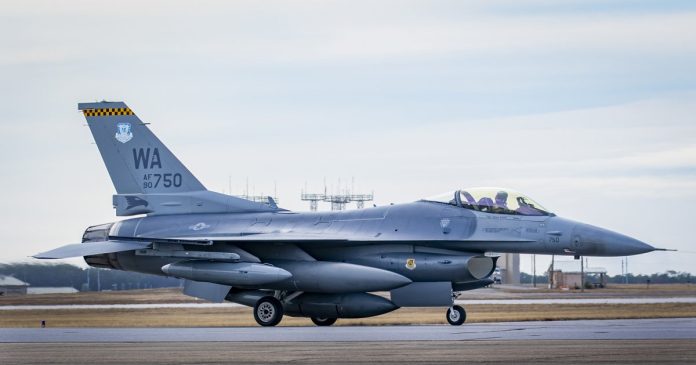Українські Повітряні Сили можуть втратити один із ключових інструментів радіоелектронної боротьби – системи AN/ALQ-131, які допомагають глушити російські радари та робити F-16 менш вразливими для ворожої ППО.
За даними Forbes, адміністрація Дональда Трампа може зупинити обслуговування цих систем, що серйозно послабить обороноздатність українських ВПС. AN/ALQ-131 – це потужний засіб радіоелектронної боротьби, який створює електронний шум, унеможливлюючи відстеження винищувачів F-16 російськими радарами. Під час президентства Джо Байдена американські фахівці регулярно оновлювали програмне забезпечення AN/ALQ-131, щоб пристосовувати його до змін у російських системах ППО. Якщо США припинять підтримку, українські літаки ризикують залишитися з застарілими налаштуваннями, які російські військові можуть легко обійти, змінивши частоти своїх радарів.
Українські ВПС можуть зіткнутися з серйозними труднощами: зменшиться ефективність винищувачів F-16 у боях з російськими ППО. Зросте загроза для українських пілотів, адже російські радари зможуть легше виявляти їхні літаки. Україні доведеться шукати альтернативні системи РЕБ, які можуть бути менш ефективними. На тлі можливої відмови США від підтримки AN/ALQ-131 Франція висловила готовність передати Україні винищувачі Dassault Mirage 2000. Mirage 2000-5F оснащені власними засобами радіоелектронної боротьби, які не залежать від американської підтримки. Однак наразі їхній захист обмежений застарілими системами: радіолокаційний попереджувальний приймач Serval. Пристрій постановки перешкод Sabre. Розпилювач хибних цілей та сигнальних ракет Eclair. Міністерство оборони Франції пообіцяло модернізувати ці системи, ймовірно, оснастивши Mirage 2000 новітніми комплексами Mark 2 або Mark 3. Попри складну ситуацію, Україна не залишається без варіантів. У разі припинення американської підтримки доведеться: знайти альтернативні шляхи обслуговування AN/ALQ-131 (наприклад, через європейських партнерів). Активніше працювати з Францією, щоб отримати Mirage 2000 із сучасними засобами РЕБ. Розробити власні системи РЕБ, щоб зменшити залежність від закордонної підтримки.
Втрата обслуговування AN/ALQ-131 стане серйозним ударом для Повітряних Сил України, але надія залишається – все залежить від дипломатичних зусиль і швидкості адаптації до нових умов.


